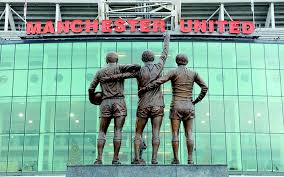By David Owen
November 13 – Higher broadcasting revenue was not enough to prevent inconsistent Manchester United from reporting a pre-tax loss of £27.1 million for the first quarter of 2020-21, as coronavirus continued to exact a heavy toll on football club finances.
The loss, for the three months to September 30, compared with a modest year-earlier profit of £2.5 million. The result was generated on revenue of £109 million, down from £135.4 million.
With the finales of both the 2019-20 domestic and European seasons uniquely being played out during the summer quarter, albeit in largely empty stadia, broadcasting revenue jumped 45% from a year earlier to £47.6 million. The club’s return to the lucrative Champions League for the 2020-21 campaign suggests that this uptick in TV income is likely to continue. This new Champions League campaign did not get under way until October 20.
With the club saying that the pandemic continued to disrupt its businesses and would continue to impact results, commercial revenue for the latest quarter dropped 25.7% to £59.7 million. Match-day revenue, meanwhile, was obviously almost non-existent at just £1.7 million, down from £22.1 million.
Operating expenses were cut by 9.5% to £123.5 million, but employee benefit expenses actually crept up by 2.4% to £71.9 million.
The club said it made a loss of £12.6 million on the disposal of “intangible assets” (players), versus a £12 million profit in the corresponding year-earlier period. According to the cash flow statement, it shelled out £70.8 million in payments for players over the quarter, with £19.2 million recouped from player sales.
Net debt at September 30 was put at £440.6 million, lower than the year-end level of £474.1 million published along with the full-year results well under a month ago.
The club said it had now arranged a further £50 million in revolving credit, to take total “accessible” liquidity to £200 million.
In spite of the latest quarterly loss, it said that a cash dividend of nine US cents a share would be paid in January.
Ed Woodward, executive vice chairman, said: “While the Covid-19 pandemic continues to cause significant disruption, we are optimistic that the recovery and normalisation phase is gradually coming into view.”
He continued: “The club’s resilience and our strong commercial business continue to provide a solid foundation and gives us confidence in our long-term outlook beyond the pandemic, both on and off the pitch.”
Interestingly, in light of recent super league speculation, Woodward also signalled United’s preparedness to play a role in supporting lower-league football in what remains of the crisis, saying: “We recognise…that the Premier League has a responsibility to support the wider English football pyramid. We will continue to push for this support, both through emergency assistance during the pandemic and through longer-term reforms to ensure that the success of the Premier League is reinforced for the benefit of the national game as a whole.”
Contact the writer of this story at moc.l1751588976labto1751588976ofdlr1751588976owedi1751588976sni@n1751588976osloh1751588976cin.l1751588976uap1751588976

